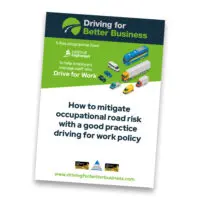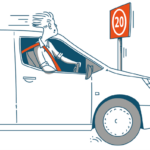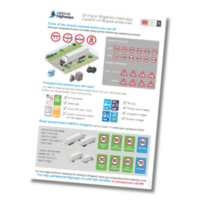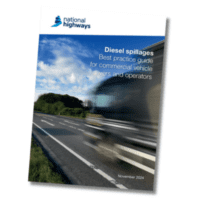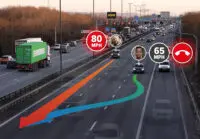Managing Road Risk – Resources
National Highways and Driving for Better Business offer lots of free resources to help you and your drivers remain safe and legal.
Access some of our key resources below:
Driver Roadworthiness Guide
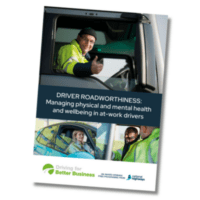
Managing physical and mental health and wellbeing in at-work drivers – explains the importance of not only ensuring vehicle roadworthiness but also the fitness of drivers. Driver health, mental state, and physical fitness significantly impact driving safety. The guide provides strategies for assessing and maintaining driver roadworthiness.
Guide to Incident Investigations
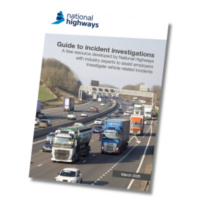
Developed with industry experts to assist employers investigate vehicle related incidents. Having an incident investigation process will help employers manage the risk of work-related driving, helping them to understand underlying issues and root causes, share learning and put in place measures to reduce future occurrences.
Risk and Policy E-book
Work related road risk is the risk that someone driving a vehicle on the roads as part of their job may be involved in a collision. Government road traffic collision and casualty statistics have consistently shown that around a third of all fatalities and injury collisions involve at least one person who was driving for work.
Driver Wellbeing Toolkit

A free self-guided online learning course for anyone involved in the management of drivers. In just 20 minutes, you’ll better understand your legal responsibilities for managing driver wellbeing, the cost of poor wellbeing, and why mental health support matters. More importantly, it gives you practical steps to take action.
Diesel Spillages – Best Practice
This best practice guide is aimed at commercial vehicle drivers and operators to increase awareness of the impact of diesel spillages. It provides guidance for drivers and operators about what can be done to help prevent diesel spills. It also explains what actions should be taken in the case of a diesel spillage incident.
Be the Change Video Series
We hear about car, van & truck crashes every day.
But vehicles don’t crash. People crash. They just happen to be in a car, van or truck at the time. These 3 training videos are for both managers and drivers. We witness a fictitious collision, examine the consequences, & look at how it could have been avoided.
Driver Education Courses


